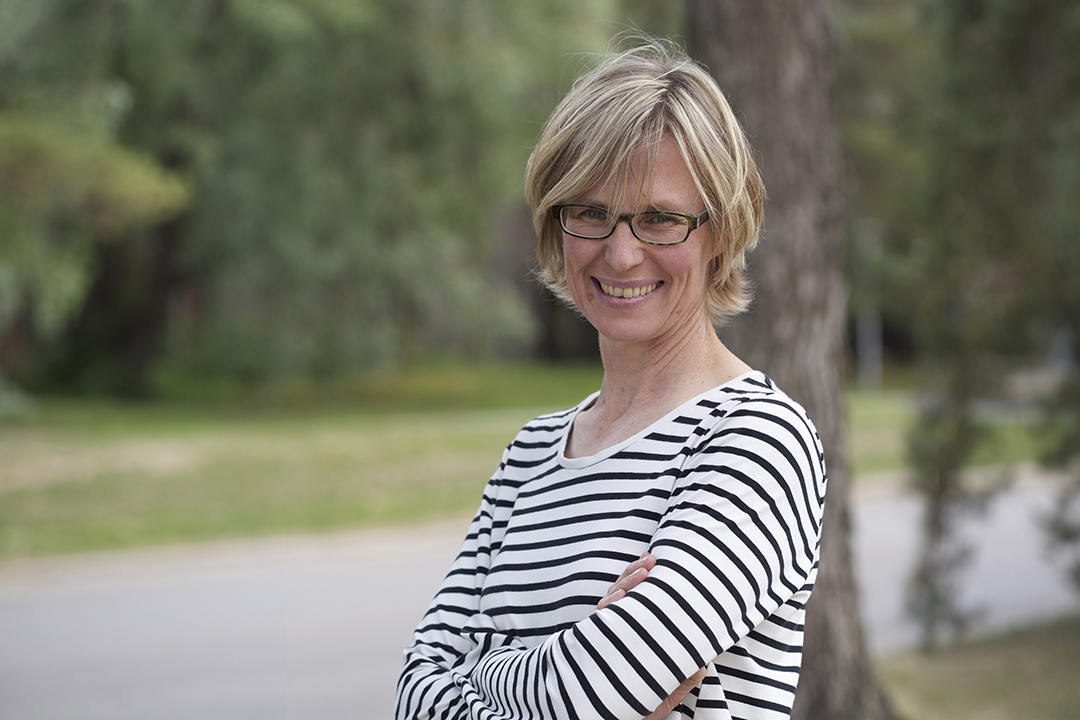
USask appoints Dr. Gillian Muir as veterinary college’s dean
More than three decades after graduating from the Western College of Veterinary Medicine (WCVM), Dr. Gillian Muir (DVM, PhD) is set to become the college’s dean on July 1.
By WCVM TodayMuir, who served as the college’s interim dean for the past 12 months, was appointed by the University of Saskatchewan (USask) for a five-year term as the college’s senior leader. She is the first WCVM graduate as well as the first female to be named dean of the western Canadian veterinary college.
“This past year has been an opportunity for me to gain a deeper understanding of the college’s role on campus, across Western Canada and around the world. I’ve learned how the college’s relationships with our communities are integral to all that we do,” said Muir. “While we still face immediate challenges as we move out of pandemic restrictions, I’m excited to begin working on longer-term initiatives that will help to strengthen the WCVM’s future and its contributions to the community.”
Originally from Calgary, Alta., Muir received her Doctor of Veterinary Medicine (DVM) from the WCVM in 1988 and completed two years of graduate studies at USask before earning her PhD degree in neuroscience at the University of British Columbia. She joined the WCVM faculty in 1996 and is a professor in the WCVM’s Department of Veterinary Biomedical Sciences.
Muir’s research program investigates recovery after spinal cord injury and her work on a novel therapy has been translated to clinical trials for people with spinal injuries. A gifted instructor, Muir teaches neuroscience to first-year veterinary students and has been the recipient of multiple teaching awards, including the USask Provost’s College Award for Outstanding Teaching in 2016.
Muir has served as department head and as graduate chair, along with one-year terms as the college’s acting associate dean (research) and interim dean. She led the revision of the Year 1 DVM program as part of the WCVM’s curriculum renewal and was involved in developing the college’s strategic plan as part of the University Plan 2025.
“The WCVM plays a key role on campus of linking the worlds of animal health, human health and environmental health through its interdisciplinary programs and initiatives. I believe Dr. Muir is the ideal leader to amplify the college’s energies in collaboration, discovery and impact,” said USask Provost and Vice-President Academic Dr. Airini (PhD).
“Dr. Muir brings an exceptional range of experience, expertise and insight to her new role as dean. I look forward to what the veterinary college and the WCVM community will accomplish with such an enthusiastic leader.”
Building and maintaining partnerships will be a key component of Muir’s role as dean. As the regional veterinary college for Western Canada, the WCVM works with many stakeholders including the provinces of Saskatchewan, British Columbia and Manitoba—the college’s three main funding partners.
The three provinces, along with USask, announced the college’s new Interprovincial Agreement in September 2020. The new agreement reaffirms the partners’ financial support and the college’s commitments to the provinces over the next five years.
Muir sees the WCVM at the intersection of many communities, all sharing an interest in animal well-being.
“We keep animals healthy so that people can be healthy. Everything we do—training future veterinarians, ensuring the safety of our food supply, monitoring and investigating disease, improving animal welfare, looking after our animal companions—works toward that goal. We continue to adapt and grow in order to predict and prepare for future challenges,” said Muir.
“As the college moves forward, we need to enrich the relationships we have and forge new partnerships to sustain and expand what we do. We need to use our interdisciplinary expertise to inspire the discovery and learning that will keep animals well, keep people well and ensure a future in which we can all thrive.”